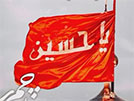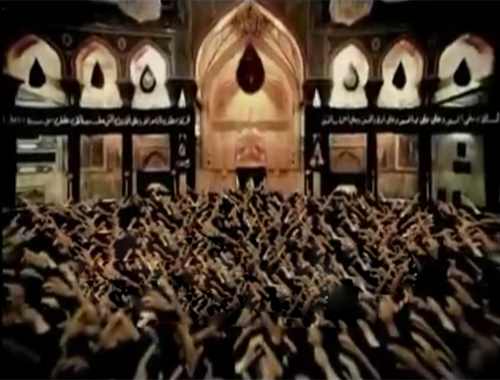Zakat and Sadaqah Increase Wealth
- Details
- Hits: 5388
Zakat and Sadaqah Increase Wealth
In the following Qur’anic ayats Allah (S.w.T.) promises that anything spent in Allah (S.w.T.)’s way will be amply rewarded both in this world and the hereafter,
“…and He causes Charitable deeds to prosper.”
(Surah al-Baqarah 2: 276)
“…and whatever thing you spend, He exceeds it in reward, and He is the best of Sustainers.”
(Surah Saba 34: 39)
“…and whatever you give in charity, desiring Allah’s pleasure it is these (persons) that shall get manifold.”
(Surah ar-RÅ«m 30: 39)
Paying Zakat and spending it in the prescribed manner increases one’s wealth. The stingy and the niggardly believe that they will be impoverished if they spend in Allah (S.w.T.)’s ways, in direct contradiction to what Allah (S.w.T.) has promised in His holy Qur’an and the traditions of Ahl ul-Bayt (a.s.), some of which are mentioned below. In the sermon of Fadak, Janabe Fatimah Zahra (S) says,
“Allah has appointed faith for purifying you from polytheism and made prayer Wajib to cleanse you from pride and arrogance. Made Zakat obligatory to purify you from miserliness and parsimony. (so that man is imbued with the goodly quality of charitableness and is purified of the impurity of sinful deeds). And this is also the cause for increasing your sustenance.”
It is related from Hazrat Amir ul-Mu’minÄ«n ‘Ali (a.s.):
“One who spends for a good cause is recompensed by Allah in this world and there is also an increase in his reward of the hereafter.”
(al-KÄfi)
‘Ali (a.s.) also said,
“Seek the sustenance through Sadaqah”
(Wasa’il ul-Shia Vol. 6 page 259)
It is mentioned in the book Oddatud Dai that Imam Ja’far as-Sadiq (a.s.) asked his son,
“How much amount is there for household expenses?”
“Forty Dinars,” replied the son.
Imam (a.s.) told him give in charity all the forty Dinars. The son said that there was nothing else apart from the forty Dinars. Imam (a.s.) said,
“You donate all of it in charity, the Almighty Allah will recompense it. Don’t you know that there is a key to everything? And the key to sustenance is Sadaqah.” His son Muhammad gave away the forty Dinars in charity, Ten days had hardly passed when Imam (a.s.) received four thousand Dinars. He told his son,
“O Son! We had given forty Dinars and Allah gave us four thousand in return.”
Amir ul-Mu’minÄ«n ‘Ali (a.s.) says in Nahjul Balagha that whenever poverty strikes, you must trade with Allah by giving Sadaqah.
Imam RiÄa (a.s.) asked his slave,
“Have you given anything in the way of Allah today?”
“No! By Allah,” replied the slave.
“Then how would Allah give us anything in return?” said Imam (a.s.).
Explaining the Qur’anic Verse,
“…and whatever thing you spend, He exceeds it in reward and He is the best of sustainers.”
(Surah Saba 34: 39)
Imam Sadiq (a.s.) said,
“Do you think Allah goes back on His word?”
“No!” replied the narrator,
“Then why do you not receive the recompense of your charity?”
“I don’t know”, said the narrator.
Imam (a.s.) said, “If one of you acquires HalÄl sustenance and spends even a Dirham from it, he is certainly recompensed for it.”
(al-KÄfi Vol. 2 page 595)
It means that if he is not recompensed, either the money was acquired unlawfully or it was spent in an illegal way.
There are numerous Qur’anic Verses and traditions on this subject also but we shall be content with those quoted so far. The late Agha NÅ«ri has illustrated the importance of Sadaqah with forty incidents in his book Kalematul Tayyaba. One of the incidents mentioned therein is quoted by the great scholar, Akhund Mulla al-Fath ‘Ali from his trustworthy relative. He relates that in a particular year when prices had soared high I had sown barley on a piece of land that belonged to me. By chance my crop matured earlier than other people’s crop and soon the grain was ready for consumption. Since at that time all classes of people were facing shortage and hunger, I decided not to make any profit on my produce and went to the mosque and announced that any needy person may take barley from that farm till the other crops are ready. But even a beggar must take only as much as needed by his dependants. So people went to my farm and carried away barley according to their requirements. After the other crops had matured I ordered my agents to have a look at that farm also, in case some grain still remained in the pods. When the grain from this farm was collected I was astonished that it exceeded the sum total that I had grown on other pieces of land. In spite of the needy people taking barley from this farm there was no decrease in its crop. Ordinarily it would not have been possible to find a single stalk on this land. Subsequently all the lands that were used for barley cultivation remain barren for the rest of the year as they are only cultivable once a year. However, in the case of this land it continued to thrive even without sowing any seeds or nurturing it. At last spring arrived and it stopped snowing. The farm was still laden with crops and more fertile than other lands.
I was so astonished that I began to doubt if it is some other land. When the accounts were balanced it was found that the output of this farm was many times that of all other pieces of land.
Also related from the late gentleman is that he had a grape orchard by the roadside. When for the first time the orchard was laden with fruits the owner told the caretaker not to pluck the grapes from the trees lining the boundary wall along the road. These were left for those who passed by the orchard. Thus till the time grapes were ripe the wayfarers plucked grapes from these peripheral creepers. At the end of the grape season he ordered his farm workers to check if any grapes remained near the boundary walls. May be some were hidden behind the leaves and overlooked by passers by. However, it was found that the grapes obtained from this area exceeded the total yield of the rest of the orchard. In spite of the fact that passers by had taken grapes to their heart’s content there was no decrease in them.
The same worthy person has also narrated that every year after wheat was reaped and the grain brought to his residence, he used to calculate Zakat on it and pay to the deserving people. One year before the grain was brought home he thought delay in paying Zakat was uncalled for. And immediately distributed the prescribed share to those who were qualified to receive it. Later the remaining grain was taken home, cleaned and put in huge containers. When the quantity was computed it was found that the amount paid as Zakat had not reduced from the sum total. The quantity was the same as before Zakat was deducted.
In the same above-mentioned book it is narrated from Haji Mahdi Sultanabadi: One year after the wheat season when all the grain was cut I weighed it and paid Zakat at that very place.
After this the grain remained there for a month. Animals and even rats continued to feed upon it. Later when I weighed it again the quantity was the same as before. The quantity that I had paid as Zakat and all that the animals had consumed did not decrease the quantity.











